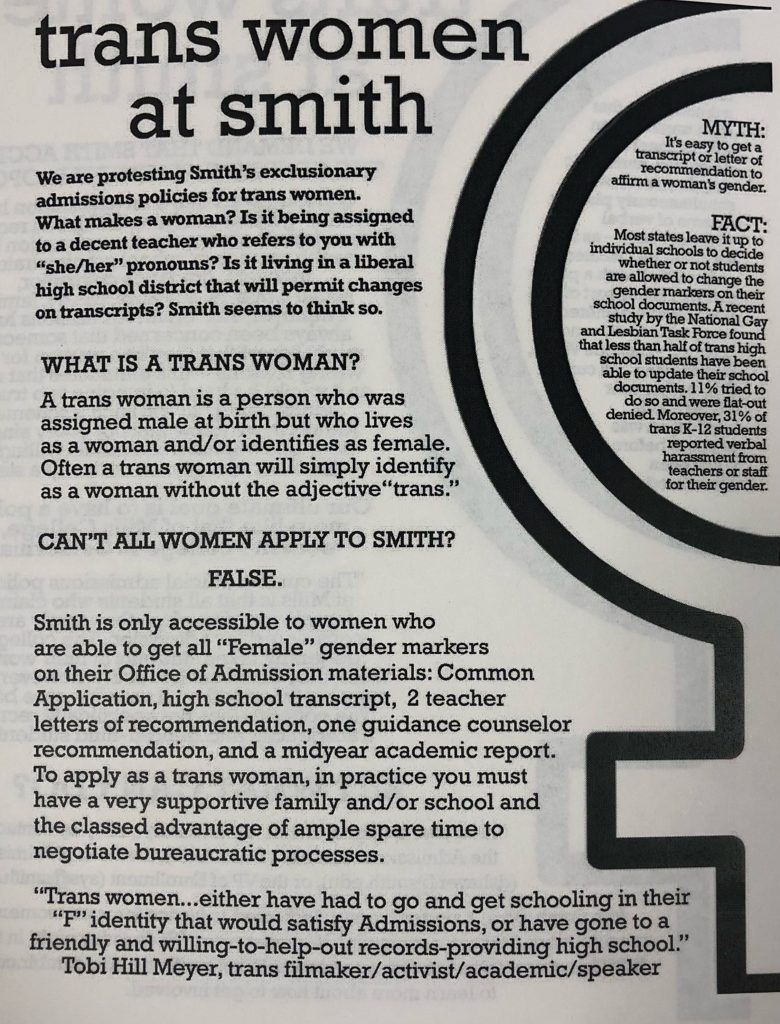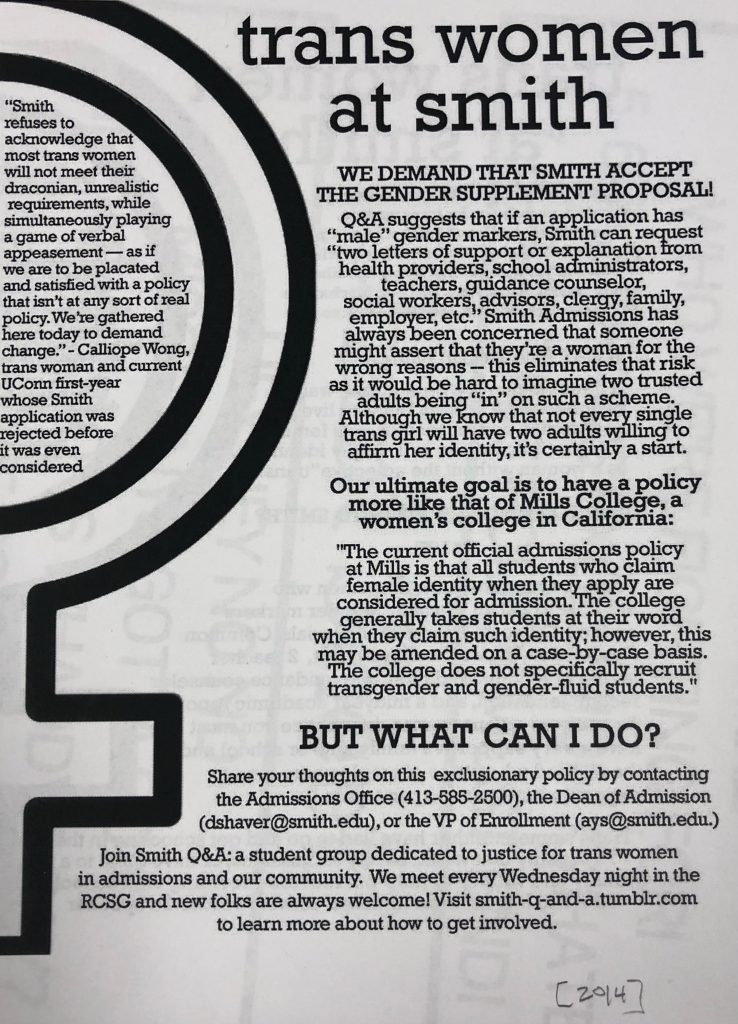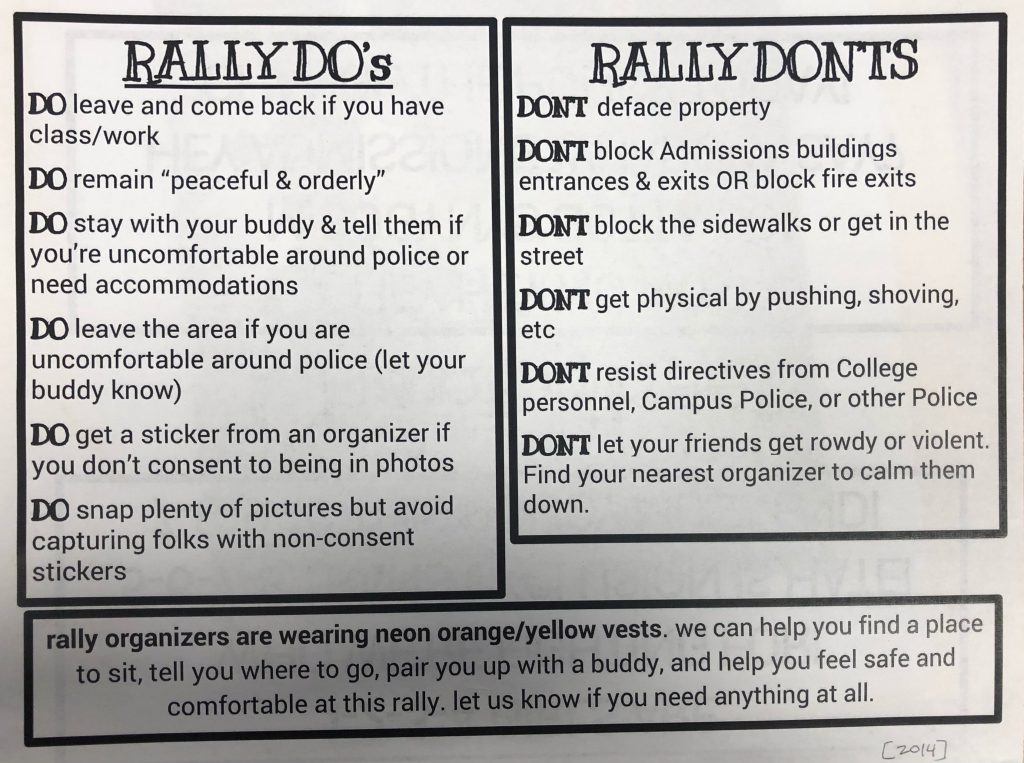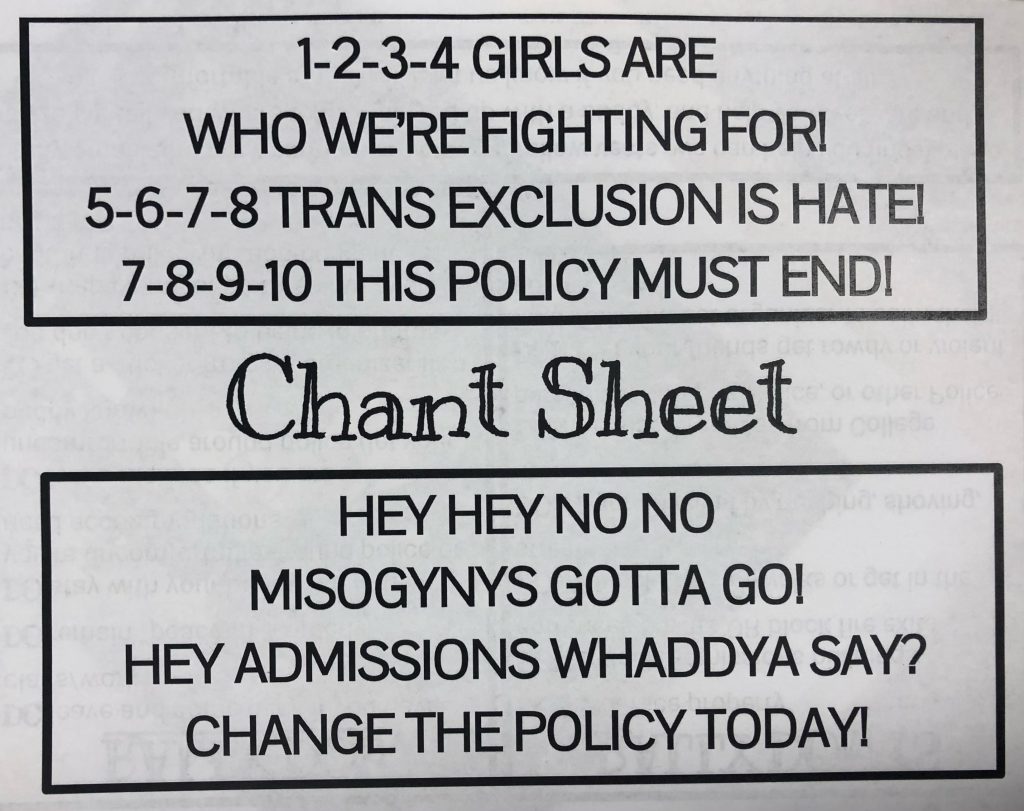In 2014, Smith College’s decision to refuse admission to Calliope Wong based on a technicality sent waves through the community. Wong, a trans woman, had pronoun inconsistencies in her high school transcripts and government-issued identification that, according to Smith, made it impossible to admit her to a historically women’s college. The decision sparked debates about the accessibility of gender-affirming practices for young people, such as changing one’s registered gender at their school and in the eyes of the state. It also spurred historically women’s colleges across the country to reexamine the wording of their admissions policies and expand their definition of what it meant to be a student who belong at a historically women’s college.
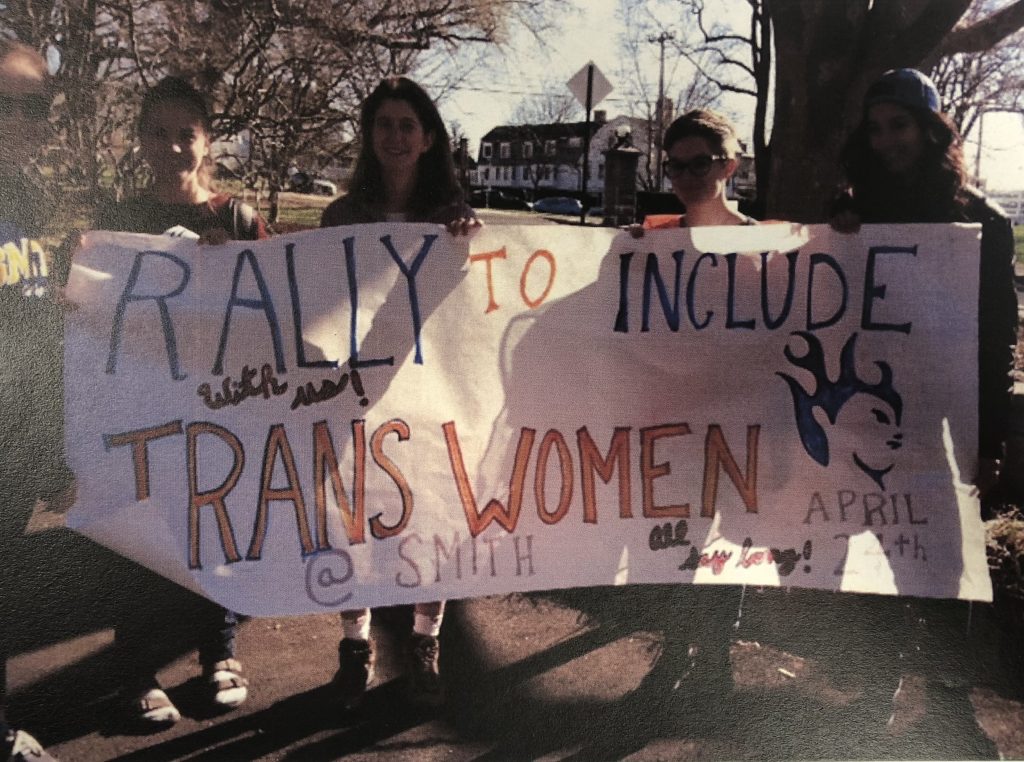
One rally held by Smith students in April 2014 in support of allowing trans women to attend Smith College served as a particularly effective mode of encouraging the administration to change its policies. They encouraged peaceful protest and remaining with “protest buddies,” and rally organizers even wore neon vests to make themselves easily identifiable in case of any questions or emergencies. The rally was a success, and the college finally revised its formerly trans-exclusionary policies. Today, Smith’s application and admissions policies are ones cased on self-identification, and Smith also allows students who realize they are male while at Smith to remain at Smith to complete their studies if they so choose. Despite this wonderful change, Smith technically still does not advertise itself as an appropriate school for nonbinary or genderqueer people, though there are plenty of students at Smith who are nonbinary people who feel either an alliance or connection to womanhood, or at least feel comfortable enough being connected to women to continue attending a historically women’s college.
